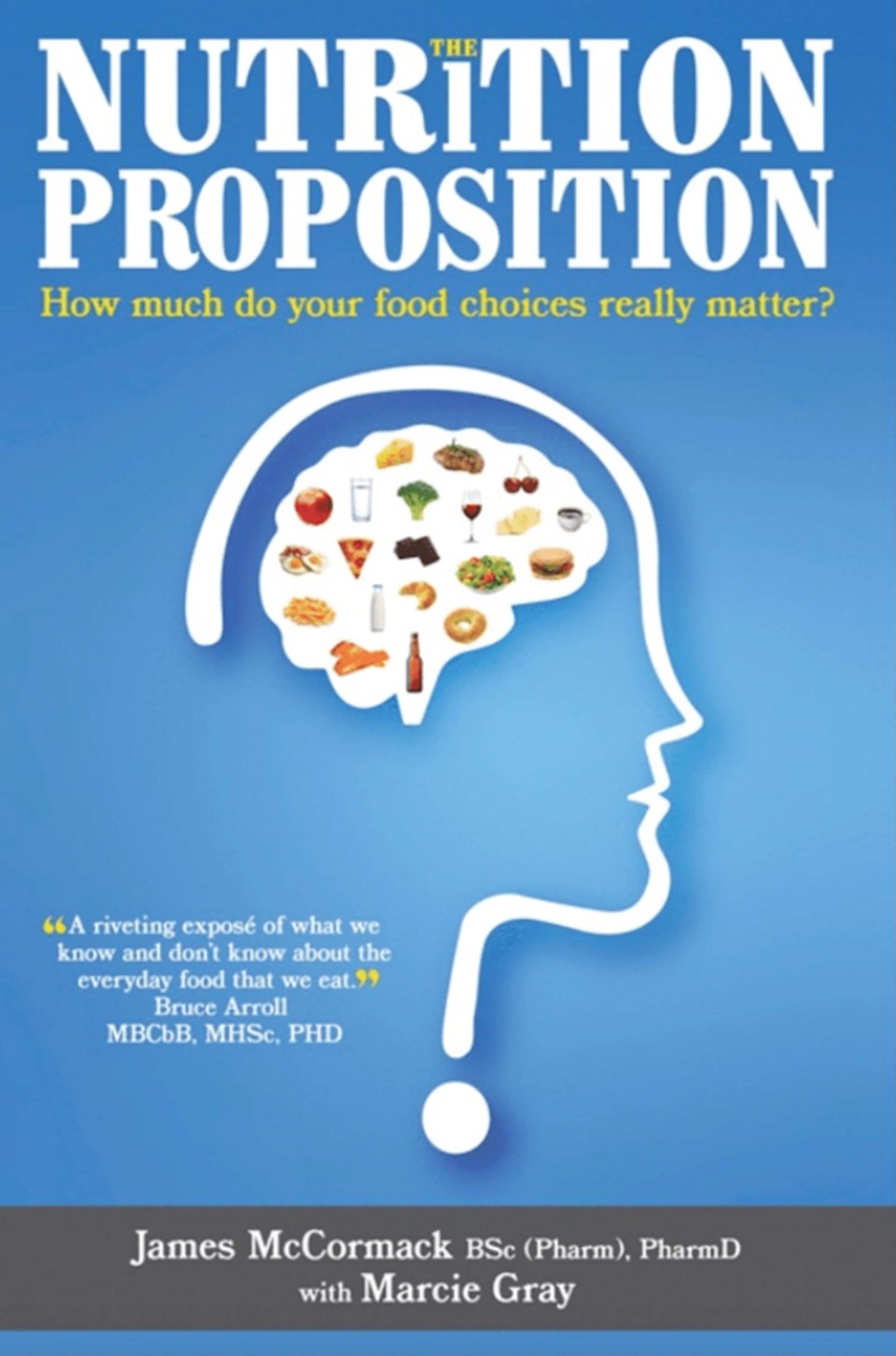DETAILS
The Nutrition Proposition
by James McCormack, co-authored by Marcie Gray
431 pages
$19.99 for the paperback version ($7.97 for Kindle)
Self-published
What business does a professor of pharmacy and medicine have in writing a book that works to set the record straight about the multiverse of nutrition info and opinion that bombards us all every day?
James McCormack may have lofty ideals, but he puts up a solid case for himself.
“My entire career has been built around evidence-based approach to using medications. In general, we way overuse medication; they don’t work nearly as well as we think. It’s all about trying to get health-care providers to know the best evidence and to know how to make a decision working with a patient about medication,” he began.
“Medications are important, but boy, what’s more important than that? Nutrition. We eat three times a day. Every one of us does that.”
That’s the philosophy he brought to The Nutrition Proposition. Co-authored by former Gazette writer and CBC producer Marcie Gray, the book works to debunk myths by cutting through a lot of the fat of fad diets and all the admonitions of those in your life who tell you to eat or not eat certain things. As McCormack writes in the introduction: “So much of the advice about how to eat healthy feels like a warning or even a threat, with our lives on the line.”
Yikes, but it’s true. With all of the stress we face already, some of us just need a bag of chips –— good ol’ comfort food — to swallow the rest of the bitter pills of what’s good for us and what isn’t. Perhaps worrying about your nutrition is worse than low-density lipoproteins. That’s my theory, but don’t trust me on that, though. I don’t really know what I’m talking about.
Few do, the author says.
He came to the task of writing this book with really just one question in mind: how much do your food choices really matter?
“It’s really important for people to be aware what the evidence does and doesn’t show. That was the whole purpose of the book, which is to say you can’t find the big answers anywhere unless you have a degree in epidemiology. It’s so nuanced,” he added. “It’s the context of evidence.”
Surely everybody already knows the value of drinking eight glasses of water a day or more, cutting out salt from your food, and eating an apple every day. It keeps the doctor away, right?
The University of British Columbia professor says, "No.” To that end, he approaches each chapter by focusing on one subject — one food group or food topic if you will — and breaking down the myths according to the evidence. Think of this book as a western cousin to Edmontonian Tim Caulfield’s own recent attempts at debunking myths such as The Cure for Everything and Relax: A Guide to Everyday Health Decisions with More Facts and Less Worry.
Similarly to Caulfield, McCormack tries to be as entertaining as he can while upholding the banner of edification. To wit: his YouTube channel where he offers parodies of music videos that bridge in his anti-misinformation messages, such as Bohemian Polypharmacy, his version of Queen's classic song Bohemian Rhapsody with the lyrics changed to focus on the problem of taking more medicines than are clinically indicated. It has had nearly 200,000 views — popular enough, but not as much as Viva La Evidence, his parody of Coldplay's Viva La Vida that transforms it into a song all about evidence-based health care.
Back to the book, though, his goal was to help readers interpret, contextualize, and understand what the best available evidence says about nutrition, but also what it doesn’t say, nor could it likely ever say. That does sound like a tall order.
“There’s so much BS around nutrition. One of the key things I hope comes across in the book is that I want you to enjoy food. What a concept,” he said, offering a personal anecdote about the joys of eating a fast-food breakfast with his kid before a 7 a.m. hockey practice.
Like he keeps saying, context is everything when it comes to food.
He explains that he’s not just being the skeptic. Sure, people should pay attention to their diets and try to stay healthy, but experts who tell you what to eat and what not to eat don’t know you personally.
“If something annoys me about an area where I go, ‘Boy, I think people are being misled,’ I’ll try either to write things, or create tools, or put together papers on these ideas. In nutrition, there’s literally nowhere out there where you can go: ‘What does the evidence show?’”
McCormack cuts no corners when showing the full science behind the correlations of food to health. For that, this is a book worth chewing through every word.




